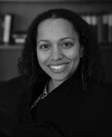A few years ago at the American Educational Research Association’s annual meeting, a presenter came into his session, walked to the front of the room, and slammed down his phone-book-size program. He shared his frustration that every year educational conferences and journals disseminate a tremendous amount of research, and yet there is limited change seen in the schools and children they serve. The presenter’s message was loud and clear, and a concern most progressive educational researchers share, but we knew there was powerful work happening all over the country. Sadly, this work does not get emphasized for various reasons, including that there are not many research outlets to highlight this work; those doing great work in the community are not focused on publishing it, as their energies are toward the work itself; and academic research can be elitist and force out the voices on the ground and not in the “ivory tower.”
Our goal for this issue was to underscore innovative approaches that are demonstrating the power of groundbreaking ideas. We set out knowing what we wanted and did not want in order to make these voices shine through the forest of elitist research and perspectives. Our framework for seeking submissions was as follows:
We did not want essays about what is going wrong or whose fault it is or why such and such will never work.
We definitely did not want any work that even had the slightest air of a deficit perspective.
We wanted stories about what is working and about the teachers, students, parents, and educators who approach this work with radical love so that these structures function effectively.
We also guided this process by asking the following questions: What is working in places with children who some people have decided are not worth the time? What kinds of innovations and ideas are being promoted by teachers, parents, and other school leaders? How are we (educators, communities, and the like) making students active participants in educational decisions that affect them?
The articles in this special issue push the boundaries of traditional educational research by opening the doors to models of equity literacy. Equity literacy is an approach that requires educators to recognize the factors that contribute to inequity and actively work to redress them (Gorksi & Swalwell, Citation2015). In order to best highlight the work in these pages, we separated the issue into three parts: teachers, students, and community at large. The work goes from a micro-perspective in the classroom/school to a more macro-perspective of community.
The teacher section opens up with José Luis Vilson’s article “Love as a Language for Educational Justice” as a “call to arms” for all educators working in communities of color. Racheal Rothrock’s “Constructing a High-Stakes Community in the Classroom: A Case Study of One Urban Middle-School Teacher” follows, exploring the intersection of a teacher and her community from an outsider perspective. Reshma Ramkellawan and Jacobe Bell’s article “Raising the Bar: Using Coaching Conversations to Address Issues of Low Expectations for Students in Urban Settings” takes the perspective of instructional coaches working with teachers on their mindsets about student capacities and presents methods teachers can put into immediate action. The last article from the teacher section, Phillip Boda’s “Less Hope, More Paint: On the Political War Being Waged in Urban Contexts” gets to the heart of this special issue by calling on teachers to reject apolitical identities and agendas.
The student section of this special issue opens with Daniel Morales and colleagues’ research on working directly with Latinx students in “’I Want to Know About Everything That’s Happening in the World’: Enhancing Critical Awareness Through a Youth Participatory Action Research Project With Latinx Youths.” Then, Xiaoxia Newton and colleagues focus on how community partnerships can directly affect students in their article “Improving Opportunities for Bridging Social Capital: The Story of a Full-Service Community School Initiative at an Alternative High School.” Rounding out the student section, Nancy Akhavan and colleagues’ research article “The Success of Urban Schools in Oxnard, California: An In-Depth Look at Developmental and Relational Assets” takes a unique look at past students’ perspectives on their own schooling.
The last section takes a broader look at community beyond the traditional school walls. Bettina Love and Gholnecsar Muhammad’s article “Critical Community Conversations: Cultivating the Elusive Dialogue About Racism With Parents, Community Members, and Teachers” overviews their work and conversations with parents in Atlanta that resulted in actionable change. This section continues with Kira Baker-Doyle’s research article “How Can Community Organizations Support Urban Transformative Teacher Leadership? Lessons from Three Successful Alliances,” which offers a vision of transformative teaching and teacher leadership. The research article “Jumping Into the Deep End: Developing Culturally Responsive Urban Teachers Through Community-Immersive Partnerships” by April Mustian and colleagues begins to bridge into higher education and the pipeline of critically reflective teachers focused on serving urban communities. Christopher Emdin rounds out the whole special issue with his article “On Building Bridges: Cultural Agnosia, HipHopEd, and Urban Education” and the role of #HipHopEd(ucators) in community building and healing.
Our readers should know that our call for papers generated more inspiring research than the journal has pages to accommodate. This issue represents only a sample of the positive strides being made in communities that are often overlooked and underserved. Still, Payne (Citation2008) reminds us that the dire needs of urban schools are often at odds with policy makers who are all too willing to trade budget decisions for children’s lives. Our call to action is to recognize, rejoice in, and replicate the positive and innovative work that is being done in communities throughout the United States.
The title of this issue uses the words strength and hope specifically to remind readers of the necessity of changing the existing lens that clouds our schema of “urban education.” Creating a paradigm shift that prompts visions of strength and hope when we hear “urban education” could be a step in the right direction. A focus on what is working and continued efforts to find ways to mediate the stressors that so many of our children, families, school staff, and faculty live with every day can be part of that shift. A big part of the transition must come from those of us who have the power to create change. Our work must serve and build bridges. We must ask ourselves how we can be useful and work in collaboration and consultation with communities instead of perpetuating a parasitic presence that results in published papers found in big fat programs but not in real results for those whom we claim to serve. We hope this issue contributes to that paradigm shift.
Additional information
Notes on contributors

Tabitha Dell’Angelo
Dr. Tabitha Dell’Angelo is an Associate Professor and Co-Coordinator of the Urban Education Master’s Program at The College of New Jersey. Her research interests include social justice in education, cultural identity development, stress tolerance, and coping strategies for teachers. She is interested in using improvisational acting techniques to support teacher development and using arts-based approaches in data analysis and presentation. Dr. Dell’Angelo is co-editor of the forthcoming book Using Photography and Other Arts-Based Methods with English Language Learners: Guidance, Resources and Activities for K–12 Educators. She is currently working on a book on using Applied Theatre methods to train teachers and other community advocates. Dr. Dell’Angelo holds a Ph.D. in Interdisciplinary Studies in Human Development from the University of Pennsylvania and teaches courses in child and adolescent development, urban education, cultural foundations, and teacher research.

Lynnette Mawhinney
Dr. Lynnette Mawhinney is Associate Professor of Urban Education and Co-Coordinator of the Urban Education Program at The College of New Jersey. She has published extensively in both U.S. and internationally focused peer-reviewed journals. She is the author of We Got Next: Urban Education and the Next Generation of Black Teachers and co-editor of Teacher Education Across Minority-Serving Institutions: Programs, Policies, and Social Justice. Dr. Mawhinney is also co-editor of the book series Contemporary Perspectives on the Lives of Teachers: Opportunities and Challenges, with Information Age Press. She is currently working on a co-authored book, There Has to Be a Better Way: Lessons From Former Urban Teachers, being published with Rutgers University Press. Dr. Mawhinney’s research focuses on the professional lives of urban teachers and preservice teachers, the schooling experiences of urban young people, and autoethnographic approaches in educational settings.
References
- Gorski, P. C., & Swalwell, K. (2015). Equity literacy for all. Educational Leadership, 72(6), 34–40.
- Payne, C. M. (2008). So much reform, so little change: The persistence of failure in urban schools. Cambridge, MA: Harvard Education Press.
